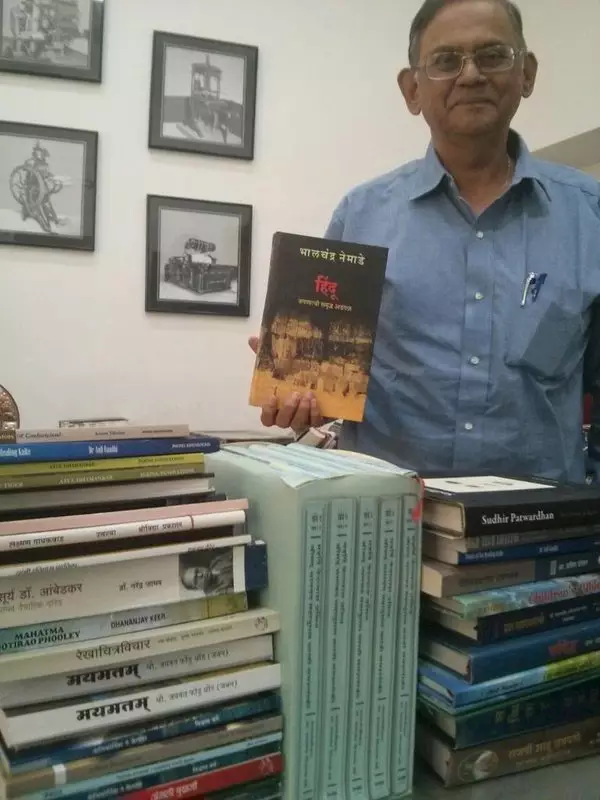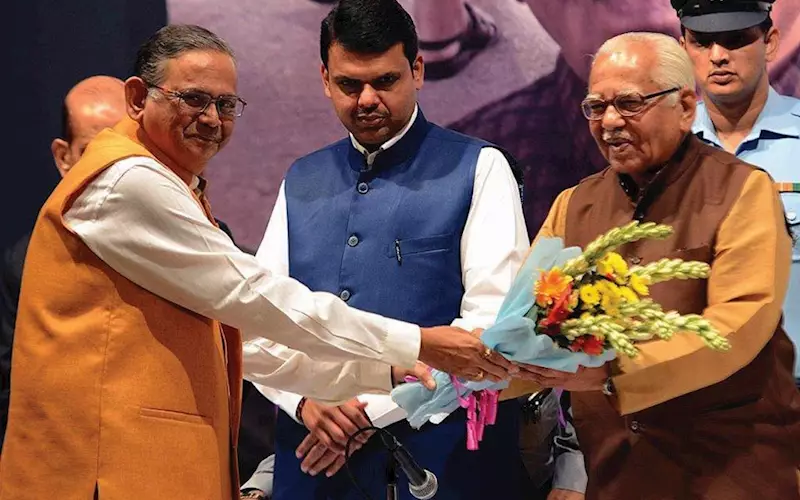Anand Limaye: A campaigner who never stops trying
I am a hardcore optimistic and believe in working with a positive attitude, says Anand Limaye, the general secretary and a core committee member at the All India Federation of Master Printers (AIFMP). He hopes to dispel the clouds and tap the immense potential of the Indian printing industry.
05 Oct 2016 | By Noel D'Cunha
PrintWeek India (PWI): Who is your core team?
Anand Limaye (AL): The team will be helmed by Kamal Chopra as the president. Parkash Babu as the treasurer. Arun Gupta will be vice-president (north), Rajinder Jain, vice-president (west), Surjit Kumar Sanyal, vice-president (east), C D Kumaravel, vice-president (south), and GK Kalairajan as the joint honorary secretary.
PWI: You no longer are at the helm of India Printing Work (IPW)? Define the new-look of Anand Limaye?
AL: No, I am still involved in the business of printing and I am looking after the affairs of India Printing Works, the entrepreneurial venture launched by my late father in March of 1932. He took it to great heights. IPW has recently entered the domain of publishing, and over the last three years, has published thirty-six books by renowned authors.
Both these business houses keep me very busy for over twelve hours a day.

PWI: How much has your work at Mumbai Mudrak Sangh (MMS) / Maharashtra Mudran Parishad (MMP) given you an understanding of the Indian industry's problems?
AL: Yes, my association with, and leadership roles at MMS and MMP have given me much insight into the Indian printing industry, as it encompasses the gamut of the industry, being of a pyramid structure at the city, state and national level.
MMS, a premier association of printers in the city of Mumbai, has given me a feel of association and working together. No doubt, I had an opportunity to closely observe the stalwarts of print fraternity as India Printing Works has given the founder president late VV Bambardekar.
The MMS has given me an opportunity to understand the problems of printers in varied fields. I have fearlessly filed public interest litigations against the government for betraying the registered printers by introducing tender system on a national level, allotting contracts of printing textbooks or by levying sales tax with retrospective effect.
I have come forward to tackle labour issues as well as the recovery issues faced by printers from reputed clients.
MMP, being a state level apex body, helped me understand the problems of printers of rural areas. They have a misconception that software installed by vendors under their invoices at the time of buying hardware is legal. Printers faced due to non-availability of power, whereby they had to pay wages to workers even for non-working hours.
I have represented with the government to share the cost of interest charged by banks as the project was based on working of eight hours.
I have submitted representations for illegal actions taken by election commission against small printers and pressurising them to execute the work at lower rates specified by Collectors.
PWI: How will these experiences benefit members of the AIFMP, going forward?
AL: The AIFMP is the national level apex body. It covers the entire spectrum of the body of Indian printers – from the largest business to the smallest, that face a variety of problems that affect their business negatively. I hope to use this experience to alleviate the problems faced by the printers.
PWI: If you could re-iterate some of the problems?
AL: Large businesses are affected by problems such as riots, which adversely affects the movement of their finished goods or raw material. Labour problems that had remained dormant for the past twenty years are once more beginning to rear its disagreeable head.
Recovery has become a subject of concern. There is ambiguity in the goods and service tax that has been introduced. Its clauses are stringent and there is no clear definition regarding payment of tax into the government treasury – whether it is to be executed by the buyer or the seller is eluded with the responsibility.
While on the other hand, the smaller businesses face extreme problems with cut-throat competition. The sudden increase in the price of paper by manufacturers and the abolition of AMC charges by machinery manufacturers is affecting their business adversely. On the other hand, the non-availability of good mechanics or trained labour adds to their woes.
An uninterrupted power supply that would facilitate the smooth functioning of necessary machinery and communications seems to be on a very distant horizon, if at all.
PWI: How are you going to tackle these problems?
AL: We plan to approach the government on various fronts by making a pre-budget memorandum, engage in modifying the Press Act, ensure a ‘one-window’ concept, reconsider the norms of the pollution control board.
PWI: You were in the core committee of the AIFMP along with Dev Nair as the president. What did you take away from that stint?
AL: No post in any such an organisation is a decorative one. One has to keep their nose to the grindstone for the industry. Nor is it a social work. Being a part of the print fraternity, a committee member will be an equal recipient in the share of the benefits that result from any endeavour to improve and strengthen the industry. Being instrumental in such beneficial acts that the association has given an opportunity for, it should be viewed with a sense of fulfillment and accomplishment.
PWI: What should be the long-term goal of the AIFMP? I see no below 40-year-old members being attracted to work.
AL: It would be unfair to blame the young generation for not being attracted to this business. It has become so much more demanding, that one would be hard pressed to spare time for their family. In light of the demands this business evokes, how would it be possible to devote any time for such so-called social work? My observation and sincere opinion is that the fraternity should combine their intellectual resources and time to resolve a crisis. This would achieve resourceful and quicker results.
PWI: Will you be able to leverage your high-level network with the present NDA government and lobby for the benefit of our industry?
AL: Certainly, I would like to take the support of more influential personalities like Harshdeep Malhotra, the ex-mayor of Delhi or Arvind Mardikar, the director of Hindustan Samachar. It’s essential and I am confident these hardcore print lovers would extend their helping hand to the fraternity.
PWI: Any initiative to create a consolidated print consortium through talks with friendly associations like Indian Newspaper Society and LMAI and ICCMA - as well as paper mill manufacturers and IPAMA?
AL: Yes, certainly we will continue the efforts of our predecessors and will try to fill in wherever there are gaps. We will start the initiative and will try to bring them together for the betterment and benefit of the industry. Consolidation is a huge advantage.
PWI: Many people in our industry feel the AIFMP has lost its mojo due to murky deals and factions. One message from you?
AL: I am a hardcore optimistic and believe in working with a positive attitude. Never say die! Every cloud has a silver lining and it is always darkest before dawn. The sun will never set on the printing industry. We will endeavor to ensure that the sun will always shine its brightest as we work to clear away, the clouds that cast its shadow upon its great, untapped potential.
Long live print.
| Anand Limaye officially takes up new role of general secretary at the All India Federation of Master Printers on 1 October 2016 |











 See All
See All